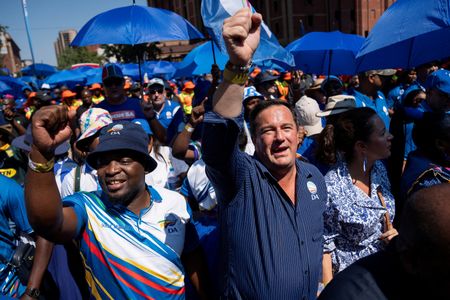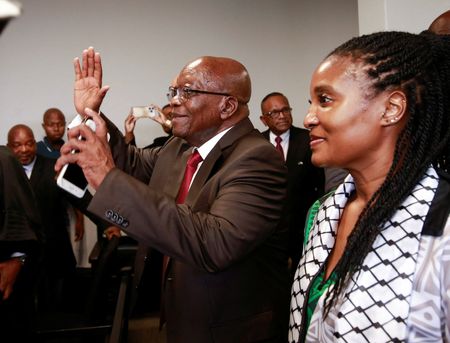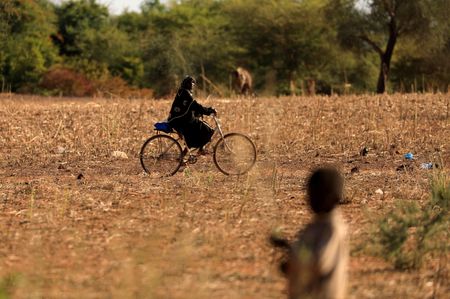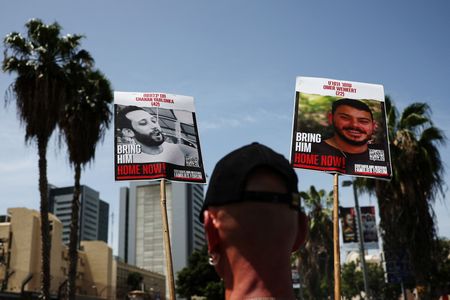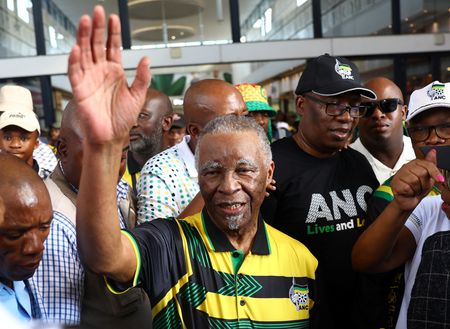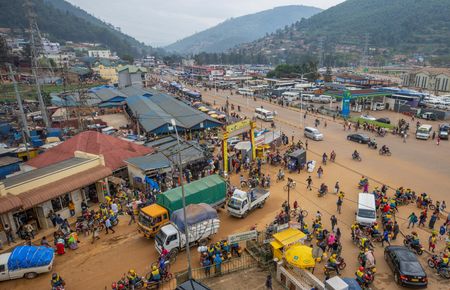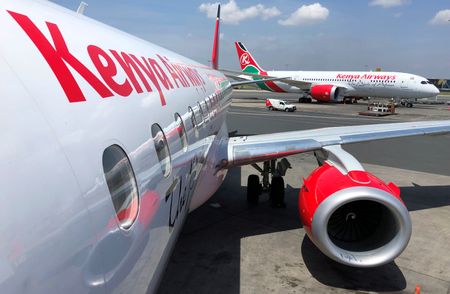By Tim Cocks and Nellie Peyton
JOHANNESBURG (Reuters) -South Africa’s second most popular party the Democratic Alliance (DA) would not rule out a deal with the ruling African National Congress should the ANC fail to get the majority it needs to retain power in May elections, its leader said on Monday.
Pollsters expect the ANC to lose its legislative majority on May 29 for the first time since Nelson Mandela took power at the end of apartheid 30 years ago, with voters unhappy with poor service delivery, joblessness, crime and power cuts.
If that happens, President Cyril Ramaphosa or a successor for the top job would be unable to stay on without a coalition, since South Africa’s parliament elects the president.
“It would depend which ANC you’re dealing with and what their programme of action is,” DA leader John Steenhuisen said, declining to disclose whether any talks had already taken place.
“I’m not ruling out anything, depending on what the election results are.”
The ANC’s Deputy Party Secretary Nomvula Mokonyane told Reuters earlier this month the party was not considering a coalition government with other parties, and that she did not think a power-sharing deal would work.
The DA has banded together with smaller parties to try to capture the more than 50% of the vote needed to take power.
They include the Zulu nationalist Inkatha Freedom Party, long a bitter rival of the ANC, as well as Freedom Front Plus, which appeals to rural white South Africans who feel politically marginalised since the fall of apartheid, and Action SA, which has built a platform on a tough anti-immigration stance and appeals to working- and middle-class voters.
“It’s a long shot,” Steenhuisen said. He added that if the opposition coalition did not win, his priority would be to prevent the Marxist Economic Freedom Fighters (EFF) getting a seat on the executive.
“What I call the ‘doomsday coalition’ … is a tie up between the EFF and the ANC,” he said.
The DA is seen as a pro-business party, whereas businesses and wealthy individuals dislike the EFF, which is popular with poor, Black South Africans. The EFF promises to nationalise industries and fix inequalities in land ownership.
“I won’t sit back and just watch the country handed over to the radical Socialists,” Steenhuisen said. “If the (opposition coalition) doesn’t get over the line, we may have to look at making what is the least worst option.”
If in power, the DA would seek to pursue its policy of privatising the power sector rather than rely on state provider Eskom and eliminating red tape to make it easier for the private sector to operate, Steenhuisen said.
The DA would “open up the (electricity) market to … competition amongst players, much like you have in the cell phone industry,” he said.
Steenhuisen reiterated the DA policy of abandoning the ANC’s flagship Black empowerment scheme, which he called “racial bean counting”, in favour of one focused solely on reducing poverty, regardless of skin colour.
Race is a divisive issue in South Africa, and the DA is still seen by many as the party of white privilege.
“I don’t buy the argument that the DA is the party of white privilege,” Steenhuisen said. “The biggest beneficiaries of good, clean, accountable government are poor, marginalised South Africans.”
(Reporting by Tim Cocks and Nellie Peyton in Johannesburg; Editing by Barbara Lewis and Nia Williams)

